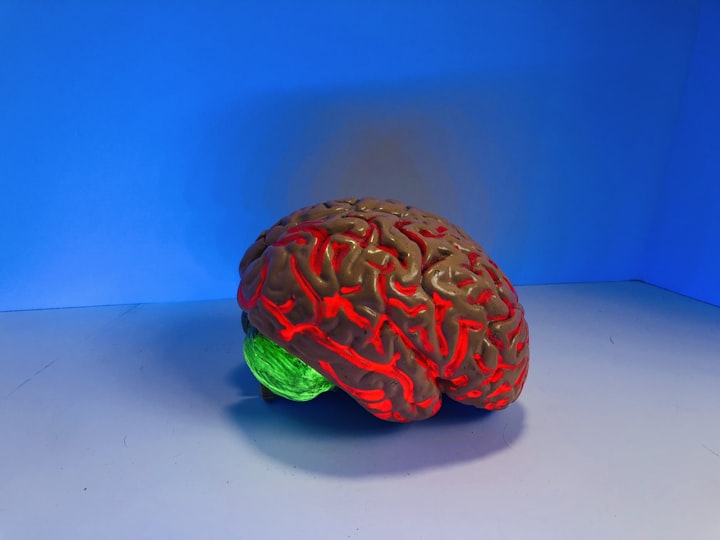Everyone Who Forgets Thinks They Have Alzheimer's, There is No Such Thing!
We have been wondering more about our brain health after COVID-19. Continuing his studies in Washington, neurologist Dr. Sevda Sarıkaya says, "The more information inputs into our brain, the stronger the communication between neurons."

We have been wondering more about our brain health after COVID-19. Continuing his studies in Washington, neurologist Dr. Sevda Sarikaya says, "The more information inputs into our brain, the stronger the communication between neurons."
Dr. Sevda Sarikaya mentioned in a tweet series she shared in the past few days that constantly checking the phone corrupts memory. As you know, since COVID-19 entered our lives, we have been more curious about our brain health. Based on the effects of smartphones on our memory, Dr. We asked Sarikaya what we were curious about. Sarikaya, who tells us about our memory, from our social environment to our nutrition.
“The more diverse groups of friends you are with, the faster your brain develops,” he says. “Brain development continues at any age and never stops.”
Has the meaning of the concept of memory changed today?
No, of course the concept is the same, but our memories are not what they used to be. Memory requires a learning process first. In order to save it in the permanent memory, certain steps are passed. There are different types of memory. We do not store every data in permanent memory. We have a type of memory called 'working memory'. Like scratch paper, we briefly record what works for us at the moment. Then we crumple it up and throw it away. 'Procedural memory', that is, the memory where our skills are recorded, for example riding a bike, tying your shoes, using the keyboard. The most well-known type is 'episodic memory'. That is, what we remember about past events. There is also 'semantic memory'.
It is like the type of memory where concepts and precise facts are stored, the meaning of objects, or 'the boiling temperature of water is 100 degrees'.
Brain development does not stop!
Could you explain a little bit about short and long term memory?
The first stage of instant-short memory learning. Information is first held in short-term memory, whose capacity is normally 7 or plus-minus 2 items of information, on a per-second basis. As it is repeated, it consolidates and passes into long-term memory. Again, depending on the severity of the memory, the emotional component it carries, and the frequency of repetition of the information, it may remain for several years or even a lifetime. Instant memory indicates the robustness of the attention function. You cannot save to short-term memory if attention is impaired. What you cannot save in short-term memory, you cannot transfer to long-term memory, that is, you cannot learn. That's the difference today! This is because the attention function, which is the first step of learning, is impaired. Phones that can't fall into our hands play a big role in this. Today, everyone complains of forgetfulness. forgetting
Everyone thinks they have Alzheimer's. There is no such thing.
On the other hand, we are in an age where everyone does more than one job and their focus is divided...
In fact, it would be more appropriate to call it 'in an age where everyone has to do more than one job but cannot do it properly'. Recently, this has been confused with 'multitasking', which means being able to carry out two or more tasks at the same time with the same concentration. Being able to 'switch' more than one job in the same time period and complete it alternately is another skill. It is not always possible to complete these tasks in a quality manner. For example, women try to do many tasks at the same time, such as going to work, keeping track of their children and the order of the house, in the same day as required by the role assigned to them. After a while, some psychological problems may occur as well as disruption in tasks due to mental fatigue that develops.
How does socialization affect our memory to accumulate new memories?
Socializing means having information input into our brains at all times. The more information input, the stronger the communication between neurons. Because they work constantly and create new connections. The rate of deaths from Alzheimer's and other types of dementia increased by 16 percent during the pandemic, according to a new study. This is also due to the rapid progression of the condition of patients who cannot socialize. There is another interesting study. Neuroplasticity, the capacity of the brain to renew itself, is much faster in childhood, but it continues at all ages. The wider your social circle and the more different groups of friends you are with, the faster your brain development. Yes, brain development continues at all ages and never stops.
About the Creator
Writer Tiger
I write articles on Psychology, Technology, Blockchain and information. Most of my time is spent researching and getting the right information.






Comments
There are no comments for this story
Be the first to respond and start the conversation.